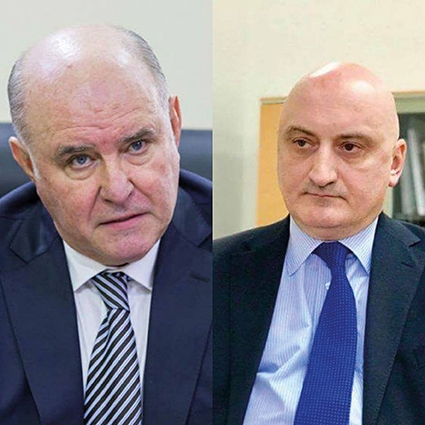Russia, De Facto Regimes of Georgia’s Breakaway Regions Leave Geneva Talks in Protest
Georgia and Russia could not reach agreement on key issues of the 44rd round of the Geneva International Discussions (GID), held on June 20.
The discussions, which represent the only format of an ongoing international dialogue between Georgia and Russia, are usually held with Co-Chairmanship of the EU, UN and OSCE, and with the participation of Georgia, the Russian Federation and the USA. The representatives of Georgia’s breakaway regions, Sokhumi and Tskhinvali occupation regimes, also attend the Working Groups.
The talks are usually held within a two meeting-group format. At one meeting, the sides discuss security and stability issues in Georgia’s breakaway Abkhazia and Tskhinvali regions, while the second meeting concerns the safe return of Internally Displaced Persons (IDPs) and refugees to their homes.
Georgia’s Ministry of Foreign Affairs (MFA) reports that as usual, the Russian and occupation regimes left the second part of the talks in protest while discussing the issues of the safe and dignified return of IDPs and refugees to their homes in the occupied regions.
However, the Russian MFA claimed in its statement that it was the resolution of the UN General Assembly on Refugees, initiated by Georgia and adopted for the eleventh time in row, which made it impossible to reach agreement on the issue of IDPs.
The representatives of Russia and the occupation regimes stressed they are concerned “with the growing activity of NATO in the region, which poses a serious threat to regional security.” It was stressed that Moscow, breakaway Sokhumi and Tskhinvali “reserve the right to carry out appropriate retaliatory measures.”
One of the top issues of the talks was the killing of the Georgian citizen Archil Tatunashvili in May with the Co-Chairs emphasizing the need to avoid any perception of impunity. The Georgian side condemned the delay in handing over Tatunashvili’s body and underlined that the absence of his internal organs had prevented Georgia from conducting a proper autopsy. Official Tbilisi introduced the results of the autopsy to the participants of the discussions, which read that around 100 injuries were inflicted to Tatunashvili before his death. Georgia imposed responsibility for the Tatunashvili case on Russia, saying the destruction of the lives of ethnic Georgians “has already become an alarming trend in the occupied territories.”
The participants were encouraged to continue exchanging information on this and other similar cases, such as the killing of Giga Otkhozoria in May 2016, and Davit Basharuli, who was killed in unclear circumstances in breakaway South Ossetia in 2015.
The non-use of force is another key issue of the Geneva Discussions. Georgia made a one-sided promise about the non-use of force in 2008 and demands the same from the Russian Federation. However, Russia, which claims that it does not consider itself a part of the conflict, wants Georgia to sign such agreements with its breakaway regions of Abkhazia and South Ossetia. Such an initiative is unacceptable for the Georgian side.
The Russian delegation stressed that the only way to ensure more productive work in Geneva is for the representatives of Georgia to enter into a direct and respectful dialogue with the representatives of occupied Abkhazia and South Ossetia.
“Unfortunately, this appeal was not accepted by the Georgian side, which, during the round continued to untwist the ridiculous thesis about the "Russian occupation" of Abkhazia and South Ossetia, and also tried to politicize the tragic death incidents of its citizens,” the statement of the Russian MFA reads.
Given the divergent positions expressed by the participants on a draft joint statement on non-use of force, the Co-Chairs proposed to continue working further on the matter.
Deputy Minister of Foreign Affairs of Georgia David Dondua, who was taking part in the meeting, says they were unable to receive a proper answer from the Russian Federation regarding the main issues of the GID.
Dondua says Russia does not fulfill the non-use of force agreement, saying first of all it is necessary for Russian forces to leave the occupied territories.
“Artificial barriers preventing people from traveling and reconciliation should be removed; illegal detentions, kidnapping practices and other violations should be ended,” Dondua stressed.
Russian Deputy Foreign Minister Grigory Karasin told reporters after the discussions that if not for the format of the GID, the hostilities in Georgia’s occupied territories would have been resumed in 3-6 months.
He spoke about the effectiveness of the talks, underlining that more frequent meetings are necessary.
Davit Dondua also expressed the same position regarding the frequency of the GID.
"I agree with Grigory Karasin on this matter and every participant is of this opinion. If we want to avoid further escalation of the situation, meetings in Geneva four times a year are not enough,” Dondua said.
The participants of GID reiterated their commitment to this format as a unique dialogue platform and agreed to hold the next round on 9-10 October 2018.
By Thea Morrison












